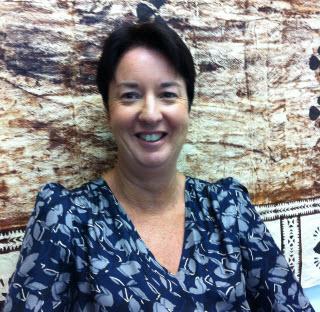- Home
- News
- Screening Matters, Issue 47, August 2014
- New Zealand’s approach to equity in screening interests NHS
News
- Screening Matters Newsletter
- April 2019
- April 2018
- December 2017
- August 2017
- April 2017
- December 2016
- October 2016
- March 2016
- November 2015
- August 2015
- June 2015
- April 2015
- February 2015
- December 2014
- October 2014
- August 2014
- June 2014
- April 2014
- February 2014
- December 2013
- October 2013
- August 2013
- June 2013
- April 2013
- February 2013
Screening Matters
The National Screening Unit newsletter
In this issue:
- New Zealand’s approach to equity in screening interests NHS
- September is Cervical Screening Awareness Month!
- Innovative approach increases cervical screening numbers
- New breast screening provider in the south
- New appointments for BreastScreen Aotearoa
- Keeping ahead of advances in screening
- Declining a smear or withdrawal from the NCSP
- New framework for equitable health care for Māori
- Loud Shirt Day
New Zealand’s approach to equity in screening interests NHS

Dr O’Hallahan, who was on a study tour, presented to those involved in delivering the English, Scottish and Irish hearing screening programmes at a meeting in London. She covered a number of issues, including equity in screening.
‘The importance of applying an equity lens across all screening programmes in New Zealand and strategies for ensuring our programmes address gaps in health equity was of great interest to the meeting’s participants,’ she says.
‘Equity isn’t necessarily a focus for other screening programmes around the world, so it is therefore an area where New Zealand can make a significant contribution.’
During her time in the UK, Dr O’Hallahan met National Health Service (NHS) managers, information technology experts, public health medicine specialists and epidemiologists to gain an understanding of the challenges of current screening programmes as well as those on the horizon.
‘I also met the programme managers and clinical leads of all the NHS newborn screening programmes, the director of the cancer screening programmes and interviewed a number of people about the future direction of NHS screening.
‘New Zealand already has strong links with the NHS, and the UK health system – while not the same as ours – is more similar than that of, for example, the United States.
‘They have a lot of experience in organised screening programmes and have implemented more than we have and I took away lots of lessons around implementation.’
Dr O’Hallahan says the appropriateness of some of the UK’s current screening programmes for New Zealand will need to be considered in the next few years, including variations on population-based screening programmes.
She says New Zealand’s programmes currently look at the entire population, but it’s interesting to consider that further work on the human genome and other risk factors will enable more targeted or individualised approaches to screening.
‘An organised screening programme is a significant investment for a country because it requires registers, monitoring, standards and indicators to be in place, so we have to be clear about what the benefits and harms are before committing to programmes and regularly assess existing programmes for cost effectiveness.
‘The NHS has a rigorous process for assessing screening programmes through their National Screening Committee. New Zealand has had a National Screening Advisory Committee (NSAC) that has undertaken similar work.
‘NSU is currently considering the way forward with regards to the work undertaken by the NSAC.’
To receive the Screening Matters newsletter by email, fill out our sign-up form.

